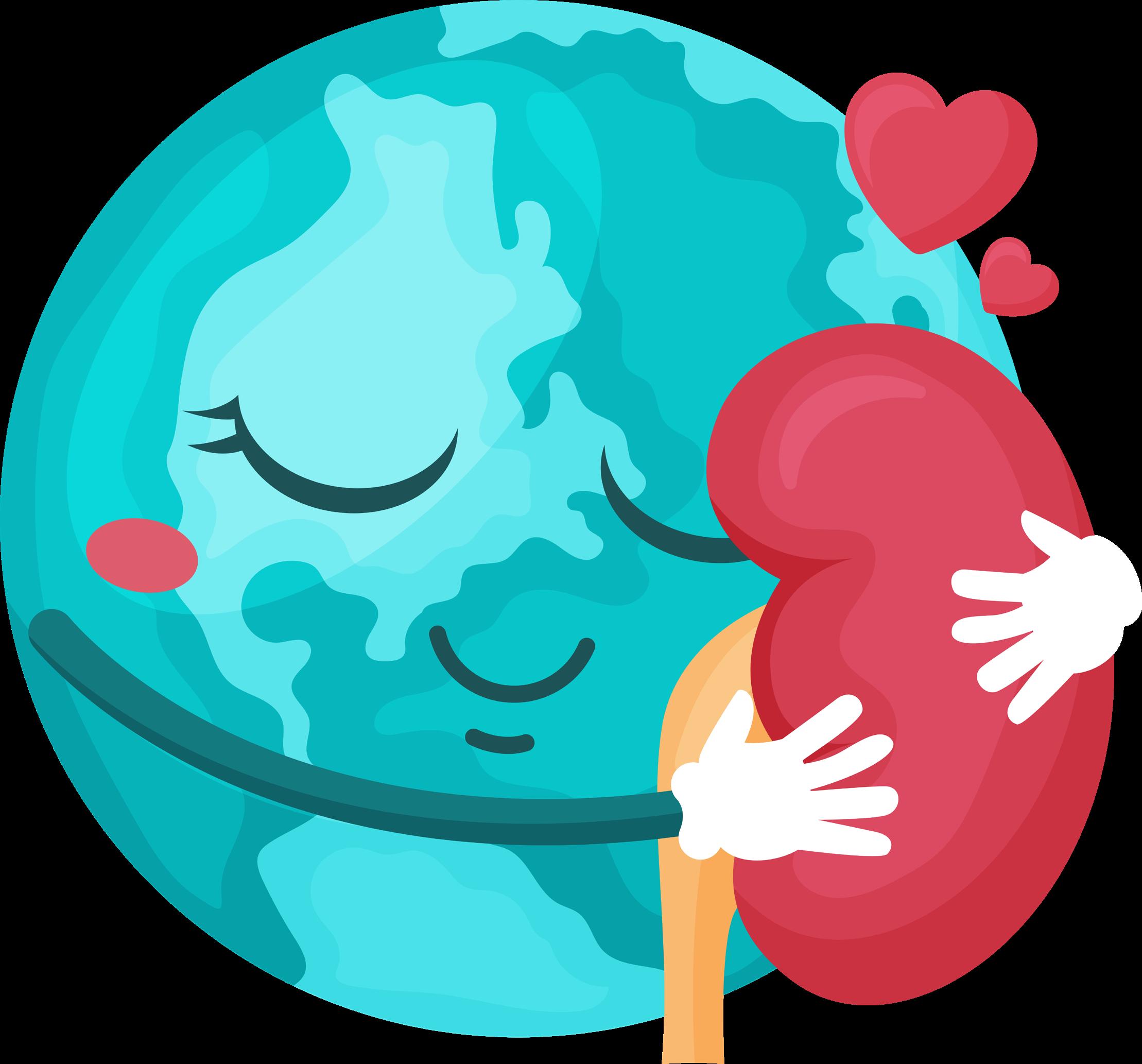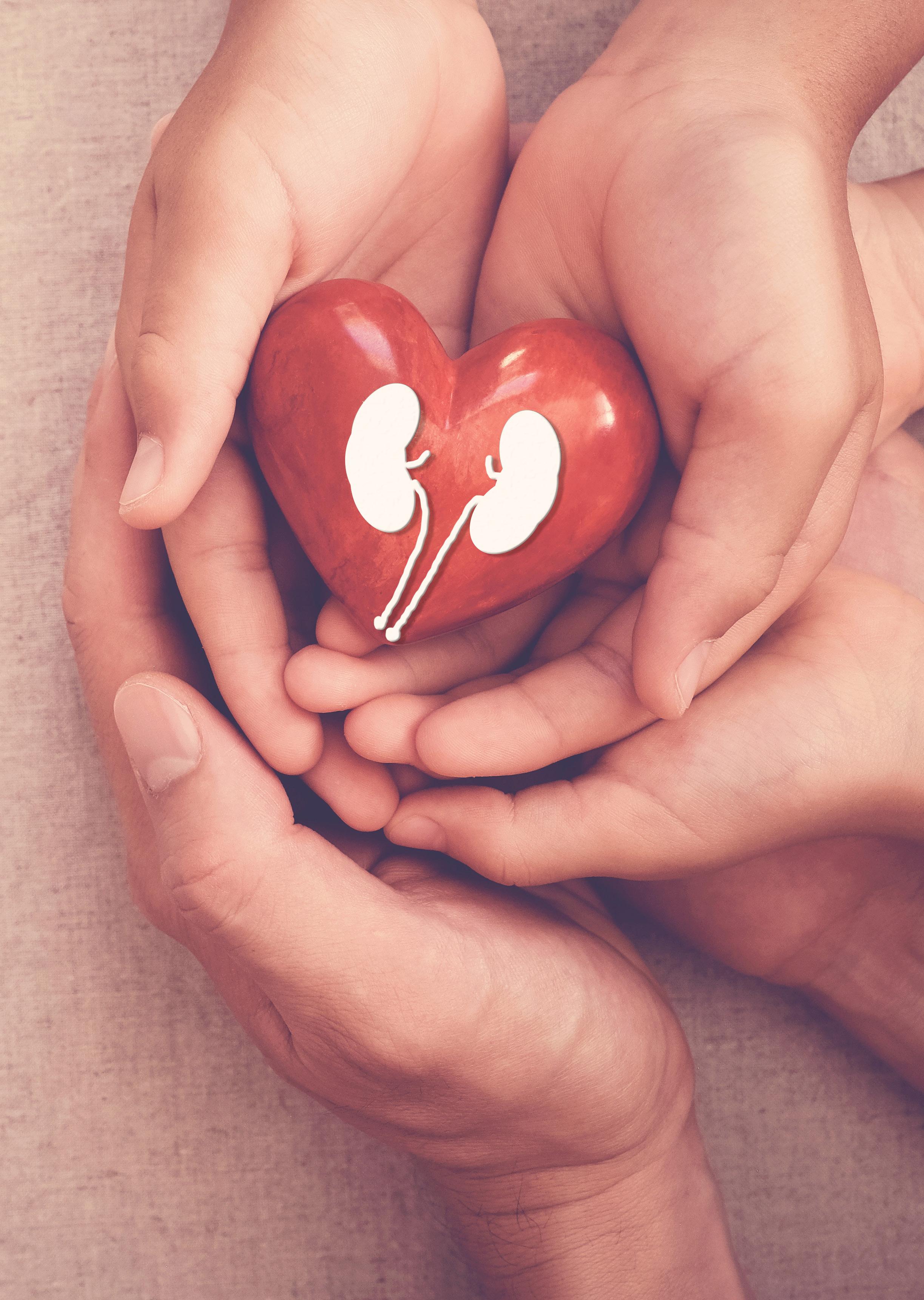
6 minute read
World Kidney Day
World Kidney Day (10th March) is a global health awareness campaign focusing on the importance of the kidneys and reducing the frequency and impact of kidney disease and its associated health problems worldwide.
Advertisement
With kidney transplants dropping a third during the pandemic and with 148 people on the waiting list in Wales alone, it’s more important than ever to help spread awareness of kidney disease and the incredible stories of those who have helped transform lives through their own kidney donations. One of those incredible stories comes from none other than our very own remarkable Ceri Millar, Chartered Accountant FCA at Aspen Waite.
Ceri donated a kidney back in 2017 to help transform the life of a kidney patient she didn’t know, after hearing another altruistic living kidney donor talking about their experience on the radio.
Her story was recently shared in the following press release by NHS Blood and Transplant to coincide with World Kidney Day and we have the privilege of sharing it with you below:
With kidney transplants dropping a third during the pandemic, it’s more important than ever for people in Wales to share their organ donation decision and consider living kidney donation.
NHS Blood and Transplant says kidney transplant activity is recovering but this World Kidney Day thousands of patients are waiting and could wait longer.
As 148 people wait for a kidney transplant in Wales, and with this figure expected to rise*, NHS Blood and Transplant is calling on everyone in Wales to share their organ donation decision and also take a moment to consider living kidney donation this World Kidney Day (Thursday 10 March 2022). Kidney transplants have been the hardest hit area of organ transplantation throughout the pandemic, with deceased donor transplants down 22% and living donor transplants down 60% - an overall drop in kidney transplants in the UK of 32% in 2020/21, compared to 2019/2020**.
This means around 1,100 fewer patients received a kidney transplant in the UK in 2020/21, compared to the year before. In living donor transplantation, 422 patients benefited instead of the usual 1,000 and there were 500 fewer deceased donor transplants**.
Sadly, the thousands of people waiting for a kidney transplant in the UK may end up waiting longer for a deceased or living kidney donor as they’ve been unable to have a transplant for most of the pandemic and the waiting list has increased.
Living donor transplantation opens up opportunities for patients wating for a kidney transplant by minimising the time people need to rely on dialysis and by offering patients who wait the longest i.e. those who are most difficult to match, are particularly ‘sensitised’ (which means they have higher levels of antibodies which could cause their body to reject a transplanted organ) or are from a Black, Asian or minority ethnic background, the chance of a successful transplant.




People can donate a kidney in life to a particular individual (a relative, friend or someone they know who is in need of a transplant) or choose to donate anonymously where their kidney will either go to a high priority patient on the transplant list or create a chain of transplants via the UK living kidney sharing scheme.
Ceri Nelson decided to donate a kidney to someone she didn’t know, after hearing another altruistic living kidney donor talking about their experience on the radio.
The 61- year-old, from Porthcawl, was inspired to follow in their footsteps and gave a kidney in 2017 to help transform the life of a kidney patient.
Ceri, a mum of two, says:
“When I heard that this was something that was possible, it immediately struck a chord with me.
I was fit and healthy with a full life and I felt strongly that I wanted to do something to help someone who was not as fortunate. Not everyone understood my decision but while we can always find reasons not to do something, I prefer to look for reasons why we can.”

Ceri volunteered her kidney to the transplant team at the University Hospital of Wales in Cardiff where she was put through several months of physical and psychological testing to ensure she was suitable to be a donor.
The grandma of one said:
Ceri, who is an active member of local amateur dramatic societies, spent five days in hospital and was back at work three weeks after her donation in the summer of 2017.
She says:
Five years on, absolutely I would do it again without a doubt, it hasn’t impacted on my life at all. My family were worried at the time but are very proud of me now.
However, living donation is not for everyone, but everyone can sign the organ donor register to donate their organs after their death and I would encourage you to take a couple of minutes to do this and tell your family you’ve done so.”
Given that a living donation is not for everyone, and that some people are not suitable donors, the majority of kidney patients will still be saved by a deceased organ donor. It is more important than ever to tell your family about your organ donation decision to help those on the waiting list.
Even though the law around organ donation has now changed to an opt out system across England, Wales and Scotland, many people are still not aware that families will still always be consulted before organ donation goes ahead.
Anthony Clarkson, Director of Organ and Tissue Donation and Transplantation at NHS Blood and Transplant, says:
“We know the pandemic is very worrying for kidney patients as thousands of people, including children, wait for a life-changing kidney transplant.
We’re pleased that transplant activity is now recovering and we’re doing everything we can to enable as many transplants as possible to take place as quickly as possible.
Sadly patients are facing a longer wait and more people need a kidney transplant, so it is more important than ever for everyone in Wales share their organ donation decision with their family to help others after your death. And if anyone in Wales is willing to consider living kidney donation, they can find out more on our website.”
For more information, or to register your organ donation decision, please visit:
www.organdonation.nhs.uk
or call 0300 123 23 23. NHS app users can also use the service to record, check or update their organ donation decision. Please tell your family about your organ donation decision and leave them certain.










